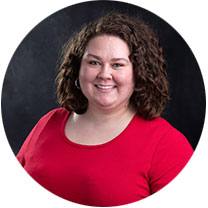Adderall is a controlled substance typically prescribed to help improve the focus and concentration for patients diagnosed with attention-deficit disorder and attention-deficit/ hyperactivity disorder. Ramagos said while her 66-year-old husband was only recently diagnosed with ADD, her 38-year-old son was diagnosed around age 10.
“[My son] was diagnosed with ADD way back when it was not really common and it was first being diagnosed,” she said. “He saw a difference as soon as he got on the medicine and was back at school. He was like, ‘Mom, I know where we are in the book,’ and, ‘Mom, I’m raising my hand, and I’m answering questions.’”
In Texas, Ramagos said, in her experience, Adderall can only be prescribed through a psychiatrist who has to send the prescription to the pharmacy every month. Due to insurance restrictions, the medication is only available in one-month supplies and can only be filled when a patient is about one day from running out—a small time frame that can be further compounded in the midst of an Adderall shortage, she said.
“It’s just been a crazy rat race,” Ramagos said. “You can’t call [your prescription] in until you’re almost out, and then the pharmacy can’t get it so then you may be out of medicine for three or four days, a week [or] two weeks.”
The Ramagos family is one of many who have been dealing with the same struggle since the Food and Drug Administration added Adderall to its shortage list on Oct. 10, according to the agency’s website. Beyond Adderall, widespread drug shortages have been seen across the U.S. since the fall, leaving Spring- and Klein-area patients as well as medical personnel scrambling to meet their needs.
Ongoing shortages
At the end of the first quarter of this year, 301 drug shortages were ongoing, according to a national report from the University of Utah Drug Information Service. This represents a 23% increase in drug shortages from one year ago.
Ongoing and active drug shortages are the most numerous they’ve been since 2014, according to the report.
“Right now, we can only get a certain amount [of medication] every month, so we can fill some patients’ [prescriptions], but we can’t fill everything,” said Tracy Ngo, a pharmacist at Lighthouse Pharmacy in Spring. “I’d say it’s affecting 20%-30% of our patients.”
Beginning in October, some of the biggest drug shortages in addition to Adderall have been Albuterol, an asthma medication, and Ozempic, a diabetes medication, said Dr. Joshua Wollen, a clinical assistant professor at the University of Houston’s pharmacy practice and translation research department.
“Those big three—Albuterol, Adderall and Ozempic—are probably the most pronounced ones because they’re so commonly used right now, but the other [medications] are a lot less frequently used,” Wollen said.
As of March 31, the class of drugs in shortest supply nationally were central nervous system drugs, such as Adderall, according to the report. The second highest category shortage was antimicrobials—such as amoxicillin.
“When the medication or dosage is not available, we often must start over from the beginning in regard to the treatment plan,” Dr. Anupam Sidhu, a primary care physician at Houston Methodist Willowbrook Hospital, said in an email. “This takes time and effort, and it is frustrating to watch our patients suffer from a condition that would otherwise be well-managed.”
Supply and demand
Drugs typically pass through multiple parties—such as suppliers, manufacturers, wholesalers, hospitals and pharmacies—in the supply chain before they end up in the hands of patients, according to the FDA. Disruptions can happen at any point along the journey, causing shortages.
For 2022, 19% of drug manufacturers blamed supply and demand for U.S. medication shortages, and 18% cited manufacturing issues, according to the University of Utah Drug Information Service. Meanwhile, 56% of manufacturers did not know the cause or would not provide a cause.
When Adderall was added to the FDA’s shortage list in October, pharmaceutical producers cited “demand increase” or “shortage of active ingredient” as the causes, according to the agency’s website.
“People are able to get seen and get treated for mental health issues much more readily, and so that has caused the increase in demand that the supply chain didn’t have enough to keep up with,” Wollen said.
In addition to supply chain issues, Dr. Jared Heathman, a psychiatrist with Mynd Psychiatry in Spring, said he believes the shortages are also due in part to legal disputes between brand and generic companies as well as temporary COVID-19-related policies that are still in place.
“There are some temporary COVID-19-related legal changes that have increased the number of online prescriptions for certain generic ADHD medications. These laws will be phased out or changed over time,” Heathman said in an email.
Waiting for relief
In the interim, doctors and pharmacists are having to get creative to supply patients with their needed medications.
At Lighthouse Pharmacy, Ngo said she has been looking for secondary vendors to supply medications she’s unable to get from her primary vendors—although she noted it comes with a higher price tag.
Ramagos said her son has found some success in switching pharmacies.
“My son switched from getting his prescription at H-E-B to Kroger, and Kroger is able to get his medicine, but his insurance does not cover his medicine at Kroger,” Ramagos said. “So he’s having to pay out of pocket.”
When Adderall has become too challenging to find, Ramagos said her husband’s doctor has switched his prescription to Concerta, which she said has actually worked better for him than Adderall. However, she noted Concerta and other Adderall alternatives have likewise become increasingly hard to find.
“Patients ... are usually pretty frustrated and understandably so,” Wollen said. “There’s some people that can’t afford the time and [taking] a half-day off work trying to chase around town and find out who has their drug in stock.”










